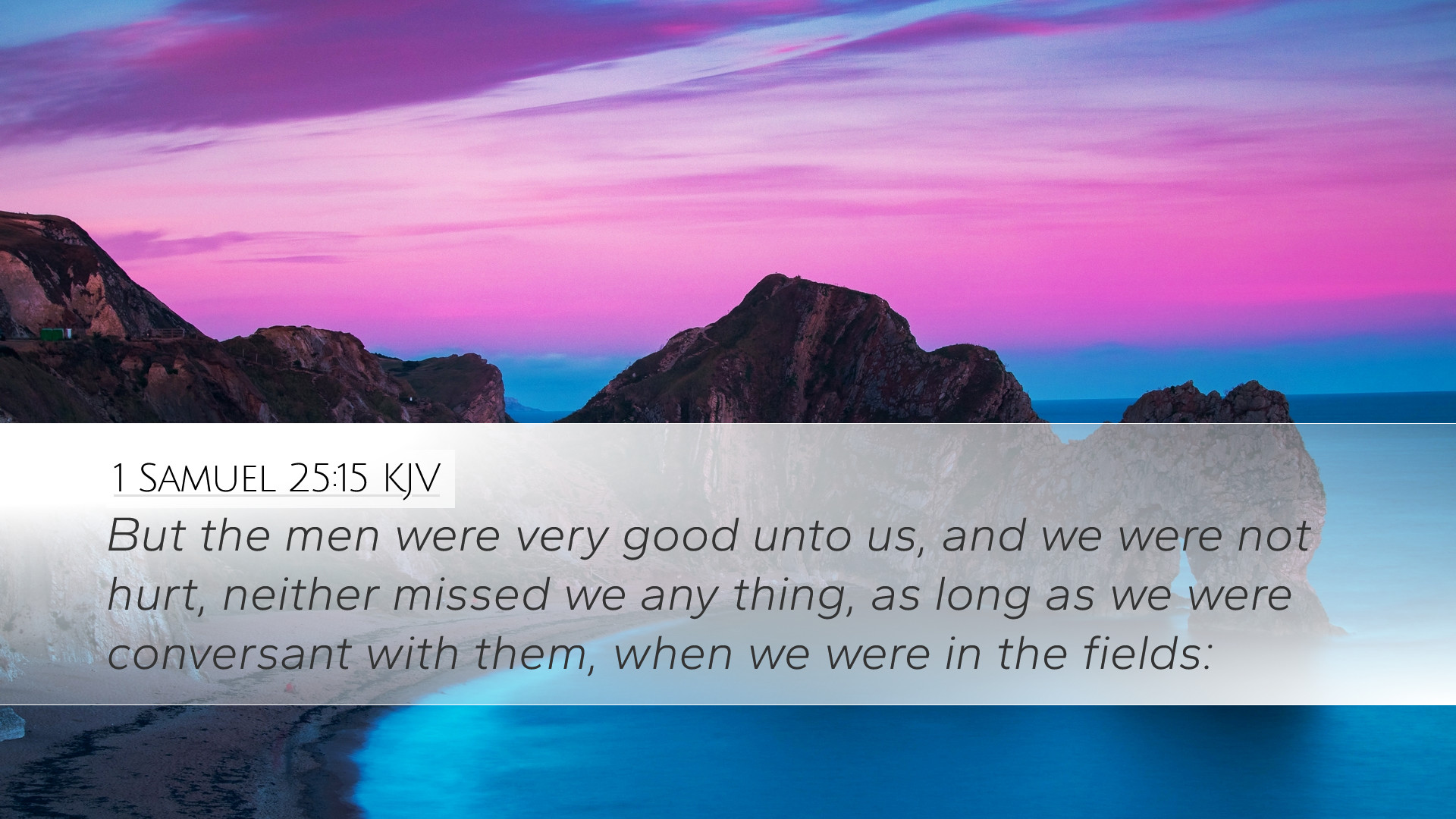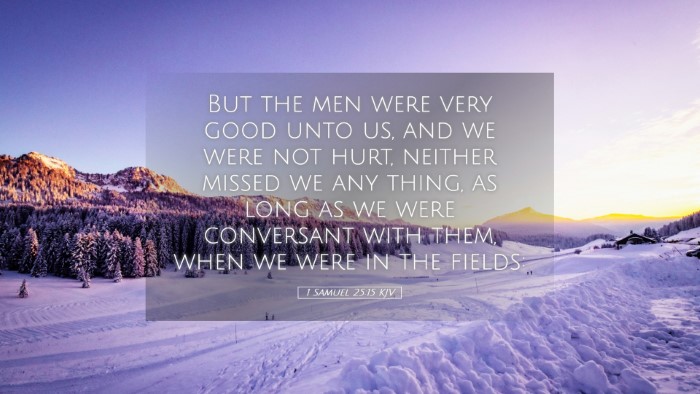Commentary on 1 Samuel 25:15
"But the men were very good unto us, and we were not hurt, neither missed we anything, as long as we were conversant with them, when we were in the fields." (1 Samuel 25:15)
Contextual Background
The verse is situated within the narrative of David's rise to prominence and the challenges he faced, particularly concerning his interactions with Nabal and Abigail. In this account, David sends messengers to Nabal asking for provisions, referring to the protection his men provided to Nabal's shepherds. Understanding this context is crucial for a deeper engagement with the text.
Exegesis and Insights
1. The Nature of Goodness: Matthew Henry notes the moral integrity demonstrated by David's men. They were "very good" because they protected Nabal’s servants and property, emphasizing the value of kindness amid potential hostility.
2. Recognition of Benefits: Albert Barnes highlights Nabal's neglect to acknowledge the benefits contributed by David's men. In this lesson, we see the human tendency to overlook kindness until it is juxtaposed with the threat of deprivation or loss.
3. The Role of Providence: Adam Clarke remarks on the overarching theme of divine providence in the dealings between David and Nabal. The protection David provided, though good and just, was also a means through which God was preparing David for future leadership.
Theological Implications
This verse prompts readers to consider the relationship between service and recognition. When providing for others, as David did, one must hope their efforts will not go unnoticed. It reflects on God’s call for us to act in good faith, even if our contributions are taken for granted.
-
Service in Obscurity: Pastors and theologians can relate this to the servant nature of Christ, who served mankind without expectation of recognition but with the hope of fulfilling divine purpose.
-
Consequences of Ignorance: Nabal's failure to recognize the service rendered has consequences not only for him but for those under his household. There is a communal aspect to our actions and the responses we elicit.
Practical Applications
The narrative encourages believers to:
-
Emphasize Gratitude: Cultivate a heart that expresses appreciation for the good received from others, as David’s men did for Nabal.
-
Practice Integrity: Reflect on how one might act selflessly in service to others, drawing an example from David’s men who acted righteously despite adversity.
-
Recognize God’s Provision: Understand God’s hand in our lives, acknowledging how He places those who protect and support us.
Conclusion
In summary, 1 Samuel 25:15 serves as a poignant reminder of the dynamics of human relationships and divine providence. It challenges us to reflect on our roles as caretakers and servants in a world where acts of goodness can often be overlooked. For pastors, students, and theologians, this verse offers rich ground for exploration in both preaching and personal reflection, urging us toward a lifestyle of vigilant service and grateful recognition.


